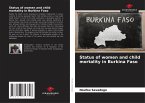More and more young Tunisian women are joining the ranks of the Islamic State terrorist organisation in Iraq and Syria. Long disregarded by the anti-terrorist services, they are beginning to be seen as a threat that is just as worrying as that of male jihadists. In addition to the security issue posed by this phenomenon, the problem of the exit and radicalisation of young Tunisian women represents a crucial issue for our society. We are not only confronted with a security problem, it is more globally a societal problem. In this case, it is striking how little quantitative and qualitative information we have on Tunisian terrorist groups and the profile of their members in general.
Bitte wählen Sie Ihr Anliegen aus.
Rechnungen
Retourenschein anfordern
Bestellstatus
Storno








